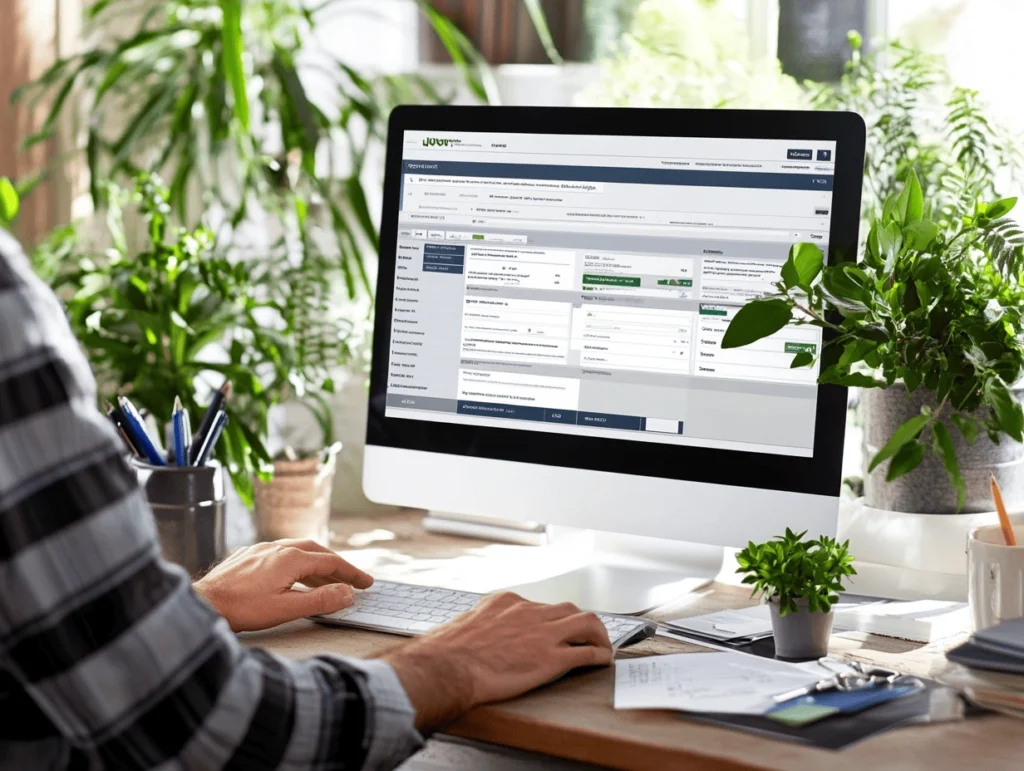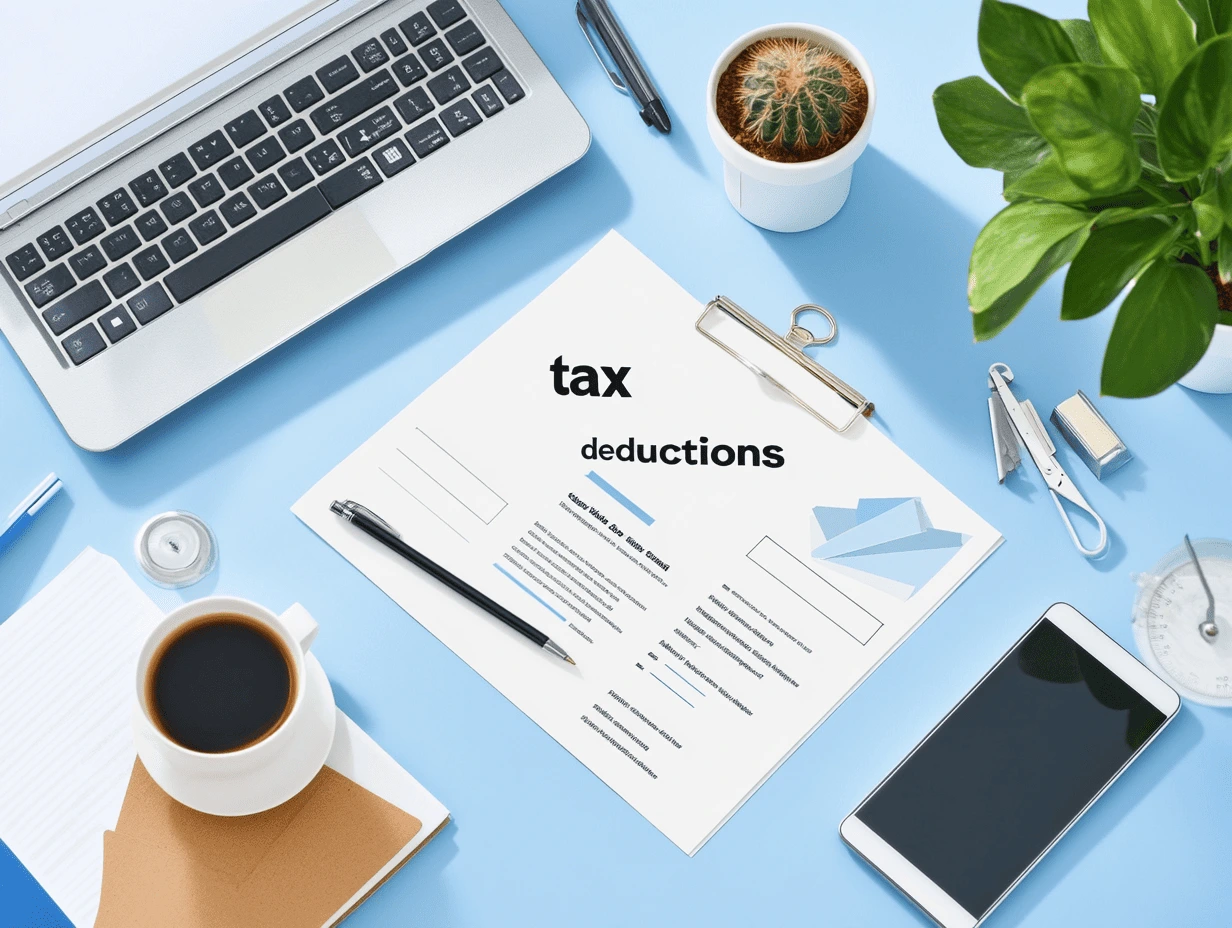Freelancers face unique challenges when filing taxes. Unlike traditional employees, they must manage their own tax obligations. This can feel overwhelming, especially when navigating self-employment tax and IRS regulations. Freelancers must file Schedule C to report business income and expenses. They also receive Form 1099-NEC from clients who pay them for services. These forms are crucial for accurate reporting but add complexity to tax season. Here are some tax tips for freelancers to help manage this process more efficiently.
Maximizing deductions is key to reducing taxable income and saving money. By claiming legitimate business expenses, freelancers lower their overall tax burden. This helps them keep more of their earnings while staying compliant with the IRS. However, many freelancers miss out on deductions simply because they don’t know what qualifies. Common tax write-offs like home office expenses, mileage, and software subscriptions can make a significant difference.
To simplify tax preparation, freelancers can use tools like TurboTax or QuickBooks Self-Employed. These platforms help track expenses and identify deductions. Learning about tax strategies also brings long-term benefits. For instance, setting up a SEP IRA or contributing to a retirement account provides both financial security and tax savings. Websites like Freelancers Union and the IRS website offer guidance tailored to independent contractors.
For those needing extra help, hiring a Certified Public Accountant (CPA) is a smart choice. A CPA ensures all deductions are claimed and quarterly estimated taxes are paid on time. Staying organized throughout the year prevents last-minute stress during tax season. With the right approach, freelancers can turn tax season into an opportunity to optimize their finances and grow their business sustainably.
To dive deeper into freelancer tax strategies, explore IRS tax resources. Understanding your options empowers you to take control of your financial future.
Understanding Freelancer Tax Basics
Freelancers operate differently from traditional employees, which affects how they handle taxes. Knowing these differences helps maximize deductions and minimize tax burdens.
What Makes Freelancers Different from Employees?
As a freelancer, the IRS considers you self-employed, meaning you must pay both the employer and employee portions of Social Security and Medicare taxes. This self-employment tax totals 15.3% of your net earnings, making it a major part of your tax liability.
To report income, freelancers use specific IRS forms. Clients who pay you $600 or more annually issue a 1099-NEC form at year-end. You must report this income on Schedule C, which calculates your profit or loss from business activities. Additionally, you file Schedule SE to determine and pay self-employment taxes. Understanding these forms helps with accurate reporting and prevents penalties.
For more details on self-employment tax rules, visit the IRS website. It provides comprehensive resources for freelancers.
Common Mistakes Freelancers Make with Taxes
Even experienced freelancers make tax mistakes. Two common ones are forgetting to pay quarterly estimated taxes and not keeping detailed records of expenses and income. These mistakes can lead to penalties or lost deductions.
Many freelancers overlook quarterly estimated tax payments. Unlike employees, whose employers withhold taxes, freelancers must estimate and pay taxes in installments. Failing to pay on time results in underpayment penalties. The IRS requires estimated payments in April, June, September, and January. Using tools like TurboTax Self-Employed or QuickBooks Self-Employed can help calculate and manage these payments efficiently.
Another mistake is poor recordkeeping. Without accurate records, freelancers risk missing deductions or struggling to prove expenses in an IRS audit. Keep receipts, invoices, and bank statements organized and accessible. Cloud storage solutions like Google Drive or Dropbox ensure secure access to financial documents.
Staying organized and proactive prevents tax issues and maximizes savings. Good recordkeeping isn’t just compliance—it’s financial protection. If you’re unsure where to start, consulting a Certified Public Accountant (CPA) can help. They provide expert guidance on tax tips for freelancers and ensure you maximize deductions.
For additional tax and financial management resources, visit Freelancers Union. Their tools help self-employed individuals navigate taxes effectively.

Key Deductions Every Freelancer Should Know
Freelancers can take advantage of several tax deductions to lower their taxable income. Understanding these deductions helps maximize savings and ensures compliance with IRS rules. Below are some of the most important deductions and how to claim them effectively.
Home Office Deduction for Freelancers
If you work from home, the home office deduction can significantly reduce your tax bill. To qualify, your workspace must be used exclusively and regularly for business. This means no multi-use areas like a kitchen table or a bedroom corner with a TV. The IRS has strict guidelines to ensure only legitimate home offices qualify.
You can calculate this deduction using either the simplified method or the actual expense method. The simplified method allows you to deduct $5 per square foot of office space, up to 300 square feet. For example, a 150-square-foot office would qualify for a $750 deduction. The actual expense method requires tracking all related costs, such as rent, utilities, and maintenance. Then, you allocate a percentage based on your office’s size relative to your home.
To streamline expense tracking, freelancers can use TurboTax or QuickBooks Self-Employed. These tools help automate calculations and ensure accurate deductions.
Business Expenses That Are Tax-Deductible
Freelancers can deduct various business expenses that are necessary for their work. These include equipment, software, and office supplies. If you buy a laptop, camera, or design software, you can deduct the full cost in the year of purchase under Section 179. Recurring expenses like website hosting, domain registration, and cloud storage are also deductible.
Even small purchases, such as printer ink, notebooks, or mailing supplies, add up over time. Keeping digital receipts in Google Workspace or Dropbox helps track expenses efficiently. Using accounting software designed for freelancers ensures accurate record-keeping and prevents missed deductions.
Mileage and Travel Deductions
Freelancers who travel for work can deduct mileage and other business-related travel expenses. If you drive to client meetings or networking events, you can claim the IRS standard mileage rate, which is 65.5 cents per mile for 2023. For example, driving 1,000 miles for business would result in a $655 deduction.
Other travel expenses like flights, hotels, rental cars, and meals are also deductible. To qualify, the travel must be directly related to your freelance work. Keep detailed records of each trip, including dates, locations, and business purposes. Using an expense-tracking app ensures proper documentation.
Even small costs, like parking fees, tolls, or public transportation, can contribute to tax savings. To maximize deductions, freelancers should maintain thorough records and store receipts digitally. The IRS may request proof, so having an organized system makes tax filing easier.
Freelancers can save thousands by taking advantage of home office deductions, business expenses, and travel-related write-offs. Keeping accurate records and using tax software simplifies the process. For up-to-date IRS rules and deductions, check IRS.gov or consult a Certified Public Accountant (CPA). By optimizing deductions, freelancers can reduce their tax burden and keep more of their hard-earned income.
Maximizing Health and Retirement Benefits (Tax Tips for Freelancers)
Freelancers can reduce taxable income by maximizing health and retirement benefits. Understanding these options helps save money and plan for the future.
Health Insurance Premium Deduction
Health insurance can be expensive for freelancers, but the IRS allows a deduction for self-employed individuals who pay their own premiums. If eligible, you can deduct the cost of health insurance premiums from taxable income. This deduction is only available if you are not covered by an employer-sponsored plan or a spouse’s plan. You must also have a net profit from freelancing to qualify.
For guidance tailored to independent workers, visit the Freelancers Union. Keeping detailed records of premium payments ensures accurate reporting and maximizes savings during tax season.
Setting Up a Freelancer Retirement Account
Contributing to a freelancer-friendly retirement account lowers taxable income while building long-term financial security. Several tax-advantaged options exist:
- SEP IRA: Allows freelancers to contribute a percentage of net earnings, with tax-deductible contributions that reduce taxable income. Learn more at the IRS Retirement Plans.
- Solo 401(k): Provides higher contribution limits than a SEP IRA. This is ideal for high-earning freelancers and those considering hiring employees.
- Traditional IRA: Offers flexibility in contributions and withdrawals, making it a practical option for freelancers planning for retirement.
Each option provides immediate tax benefits while securing financial stability. Using online calculators or consulting a financial advisor can help determine the best plan. The earlier you start, the more time your savings have to grow.
Staying informed about tax laws and deductions ensures freelancers maximize savings. For additional tax tips for freelancers, visit the IRS Self-Employed Tax Center.

Organizing Your Finances for Tax Season
When it comes to tax preparation, staying organized is key. Freelancers need an efficient system to manage their finances year-round. Proper recordkeeping ensures smooth tax filing and helps maximize deductions. This section covers essential tools and strategies to simplify recordkeeping and create a year-end tax checklist.
Tools to Simplify Recordkeeping (Recordkeeping for Taxes)
Managing financial records doesn’t have to be overwhelming. Several tools can streamline the process, making it easier to track income and expenses. Google Workspace offers tools like Google Drive for storing tax documents and Google Sheets for tracking expenses. Dropbox provides secure cloud storage, ensuring receipts and important files are always accessible. If you frequently use video conferencing for work, saving Zoom receipts can help with potential deductions.
For automated tracking, consider QuickBooks Self-Employed or TurboTax. These tools categorize transactions and generate reports, helping freelancers stay on top of their finances. Keeping digital copies of invoices and expenses ensures compliance with IRS guidelines and simplifies tax filing. By leveraging the right software, you reduce the risk of missing deductions while making tax preparation stress-free.
Creating a Year-End Tax Checklist (IRS Guidelines for Organizing Documents)
Preparing for tax season starts with a checklist. This ensures you gather all necessary documents before filing. First, collect all forms related to income, such as Form 1099-NEC, which reports client payments. Next, organize business expense records, including office supplies, travel expenses, and software subscriptions. Proper documentation is crucial for maximizing deductions.
The IRS recommends keeping separate folders for different expenses, such as mileage logs, equipment purchases, and professional services. Label each folder clearly for easy access. Reviewing last year’s tax return can help identify recurring deductions and highlight areas for improvement. Keeping track of estimated tax payments ensures you don’t miss quarterly deadlines.
For additional tax tips for freelancers, visit the IRS website or check resources from the Freelancers Union. Staying updated on tax laws helps freelancers remain compliant and avoid penalties.
By using reliable tools and following best practices, freelancers can simplify tax season. A well-organized approach saves time, maximizes deductions, and reduces stress. With consistent effort and attention to detail, managing your finances becomes easier, ensuring you file taxes accurately and on time.
Seeking Professional Help When Needed
Filing taxes as a freelancer can be challenging. If your tax situation becomes too complicated, seeking professional help can save time and prevent costly mistakes. Here’s how to determine whether you need a tax professional or if tax software is enough to handle your filing.
When to Hire a CPA or Tax Professional
A Certified Public Accountant (CPA) or tax professional can provide expert guidance, especially if your finances are complex. One clear sign that you need professional help is uncertainty about freelancer tax deductions. A CPA can ensure you maximize deductions, reduce taxable income, and comply with IRS rules. If you receive multiple 1099-NEC forms from different clients, managing them on your own can be overwhelming. A tax professional helps track income accurately, preventing errors that could trigger an audit.
Freelancers who work across multiple states may also benefit from hiring a CPA. Different states have varying tax laws, and a professional ensures compliance with all local regulations. If you’ve faced an IRS audit before, working with a tax expert can help you avoid future issues. CPAs also provide strategic advice on retirement contributions like SEP IRAs and Solo 401(k)s, which help lower your tax burden.
For help finding a qualified CPA, check out the American Institute of CPAs (AICPA) AICPA Directory. They offer a database of licensed professionals who specialize in self-employed taxes.
Using Tax Software for DIY Filers
If you prefer handling taxes yourself, tax software is an excellent alternative. Programs like TurboTax, H&R Block, and QuickBooks Self-Employed simplify the filing process, making it easier to manage self-employment tax.
TurboTax Self-Employed provides step-by-step guidance tailored to freelancers. It identifies potential deductions, such as home office expenses and business mileage, ensuring you don’t overpay taxes. H&R Block offers a budget-friendly alternative with expert support options. It’s a solid choice for freelancers looking for affordability without sacrificing features.
For freelancers already using QuickBooks for bookkeeping, QuickBooks Self-Employed seamlessly integrates financial data into tax forms. This reduces manual data entry and minimizes errors. It also tracks business expenses throughout the year, making tax season less stressful.
Tax software not only simplifies tax preparation but also ensures compliance with IRS regulations. These platforms update regularly to reflect changes in tax laws, helping freelancers avoid penalties. Many options also provide customer support, allowing users to get assistance with tax-related questions.
For reviews on the best tax software for freelancers, visit PCMag PCMag Best Tax Software.
Which Option is Right for You?
Both CPAs and tax software have advantages. If your tax situation is simple and you’re comfortable filing on your own, tax software like TurboTax or H&R Block can be cost-effective. However, if you have multiple income streams, complex deductions, or state tax obligations, hiring a CPA can save time and maximize savings.
Tax Tips for Freelancers: Stay organized, track expenses year-round, and seek help when needed. Whether you choose professional assistance or DIY tax software, the right approach ensures accuracy and reduces stress during tax season.

Conclusion: Tax Tips for Freelancers – Maximize Your Deductions
Understanding tax tips for freelancers and maximizing deductions is essential for reducing taxable income. The right strategies can help you keep more of your hard-earned money. Staying organized throughout the year makes tax season less stressful. By tracking expenses, saving receipts, and documenting income, you’ll be well-prepared when it’s time to file.
If taxes feel overwhelming, consider seeking help from a CPA or tax professional. They ensure compliance with IRS rules and help you find every deduction available. For freelancers who prefer handling taxes independently, tools like TurboTax or QuickBooks Self-Employed streamline the process.
Preparation is key. Create a system that works for you, whether it’s a digital app or a traditional filing method. Staying organized saves time and prevents last-minute stress. For further reading, explore IRS tax resources or check out Freelancers Union for industry-specific insights.
We’d love to hear your experiences! Share your best freelancer tax deductions and strategies in the comments. What tools help you stay organized? Have you found unique deductions in your industry? Your insights could help fellow freelancers navigate tax season with confidence.
For more details, visit the Small Business Administration for guidance on freelancer retirement options. Stay informed, stay proactive, and maximize your savings!

